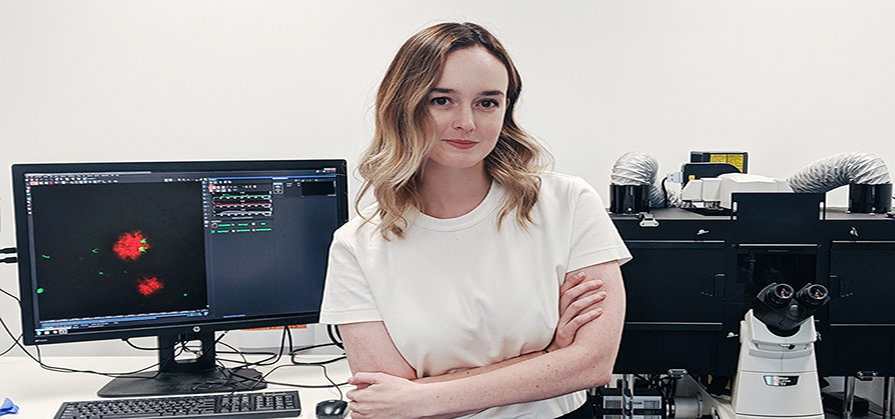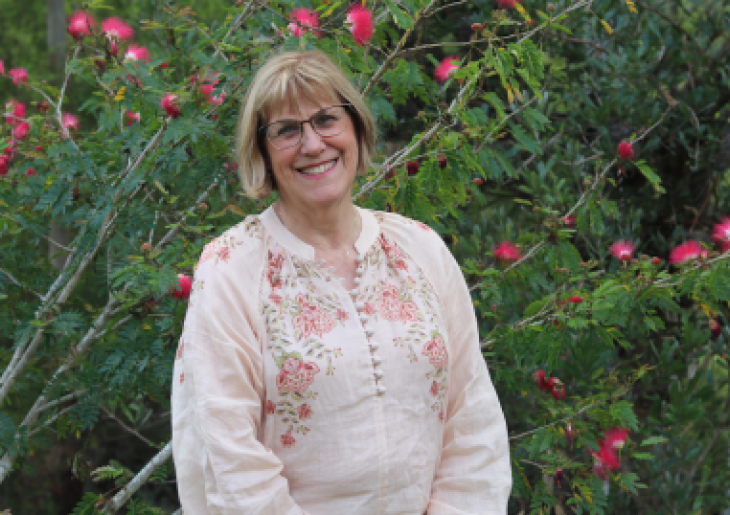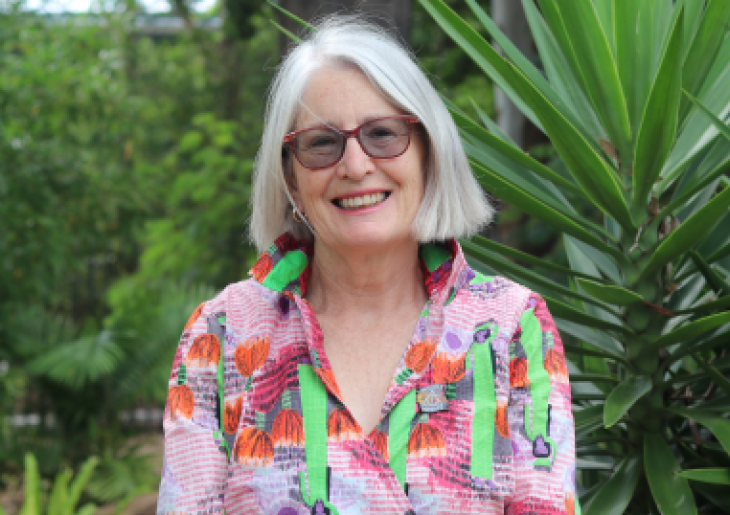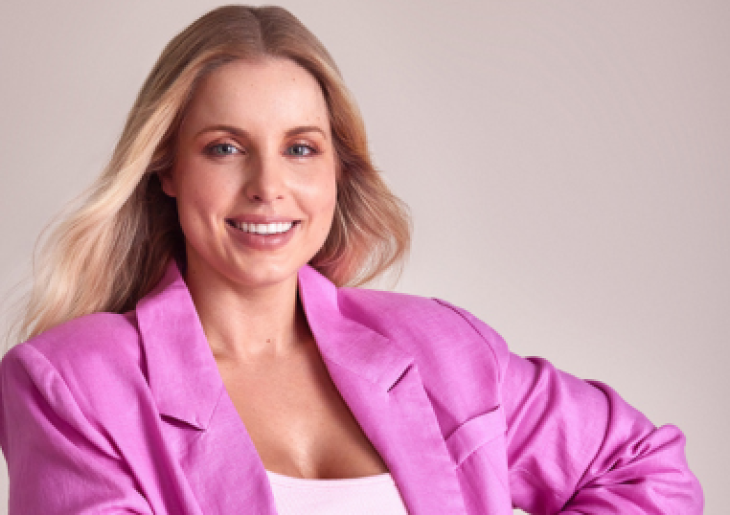Caitlin Abbott: alumni profile

Viruses, infectious diseases and the Sydney Morning Herald. Caitlin Abbott (2011) shares her passion for microscopy with her ability to communicate the complex by breaking down intellectual silos.
You graduated from CCGS in 2011. What have the last seven years looked like for you?
I’ve spent the last seven years doing much the same as the previous seven: learning. I spent my undergrad years studying microbiology and immunology as a science component, and linguistics as an arts component. After three years of undergrad I spent my Honours year in microbiology working with my current boss, A/Prof Tim Newsome. Our lab works on vaccinia virus, the virus responsible for the eradication of smallpox (hence the word vaccine), which is a really wonderful tool to look at how pathogens and host cells interact. We have a big focus on microscopy, so we spend a lot of time making different viruses that fluoresce, or more simply coloured viruses that we watch move around inside the cell. My work in particular looks at how infected cells behave. Once cells are infected with vaccinia virus, they begin to move around and migrate throughout the body – almost like the virus is carjacking the cell to get from point A to point B.
Most people view their talents as either in the Sciences or in the Arts, having a natural inclination to one over the other. However, you’ve demonstrated both when you were a CCGS student (studying equal parts Arts and Science/Mathematics) and now in your work as both a PhD student in virology at the University of Sydney, and as a writer for the Sydney Morning Herald, that it is possible to be both. Why do you think it’s important for students to have skills in both areas?
Well firstly I think that people underestimate how diverse their talents are. Even the most mathematically inclined individual will have a favourite movie, tv show, book, song etc. This idea of intellectual silos is a fairly modern one and I don’t think it’s one of our best inventions, mainly because it’s just not true. Most people have an inherent interest in multiple areas (there is no such thing as a left/right brained person!), and if encouraged they can use this broadness of knowledge to solve many problems. The MIT Media lab is a great example of how this sort of approach can yield results. They’re looking at things like slime moulds to solve engineering and cognition problems. So I think it’s important for students to find ways to link their different areas of knowledge, rather than keeping them separate.
Music and mathematics is an easy example, but biology and poetry are also closely related. Some of the best poetry arose from naturalism, and the greatest biologist of the last century – Richard Dawkins – is a brilliant writer. Physics has long had close ties to philosophy, psychology and literature are both critical to each other. It’s easy to do as well! Just read more, and read outside of your discipline. Or listen to podcasts – I think that one of the greatest current educational tools is the podcast. Ultimately (and probably most importantly) it just makes you a way more interesting person to talk to at parties.
You’ve been teaching university undergraduates for four years and teach high school workshops in Biology, when you were at school is teaching a vocation you thought find yourself in?
Gosh no! Mainly because I would hate to teach someone like me – I wouldn’t have thought I could have the patience for it (patience is a virtue that is still a work in progress for me). I still don’t know how any of my teachers put up with me, so it is funny that now I’m the one complaining about students.
What is your favourite memory of your CCGS years?
Some of my favourite memories were from my final year. I was lucky enough to graduate with an amazing year group. But the most iconic has to be any time Mr Gill exited from his storeroom with some map of Europe, wearing that amazing helmet of his (I can’t remember for sure but I think it was a replica German Stahlhelm from WWII).
What are your plans/dreams once you finish your PhD?
To spend some time out of the lab. Spend time outside of an educational institution. Twenty years is a long time to be in school; I might take a gap year.




